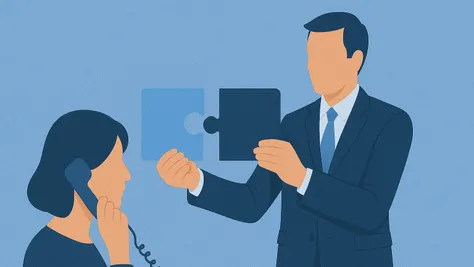Anticompetitive agreements
Regulation of agreements between undertakings is a cornerstone of competition law. In general, there are two categories of such agreements – good and bad.
The first category includes agreements concluded solely to better satisfy the needs of the population, be it uninterrupted food supply or the manufacture and distribution of protective equipment. It would be great if competition authorities could provide undertakings with more specific guidelines. For example, the on 19 March 2020, the UK government temporarily relaxed some elements of competition law to allow supermarkets to work together to safeguard supplies. Norway did a similar step with regard to airlines few days before. The others, so far, has remained silent to this end.
Nevertheless, we are convinced that as long as these agreements do not restrict competition or lead to competition being restricted to a certain extent, and as long as their consumer benefits prevail, they are either not subject to the prohibition of anticompetitive agreements or they are automatically exempted from such prohibition.
On the contrary, we are certain that the competition authorities will consistently prosecute agreements the objective of which was to profit from the crises or to cause damage to society. These include in particular price fixing, market division or agreements on coordination in reducing production, sale and research. Competition authorities will also focus on vertical agreements concluded between suppliers and customers in which prices are set for the resale of goods or potential customer categories are restricted. It is necessary to remark that such behaviour is prohibited even if encouraged by state authorities. An exception to this rule could be only cases where a mandatory duty is imposed by law or a government decree on undertakings to conclude certain agreements.
This is not just a theory. The Italian competition authority Italy announced that it is investigating reasons for a significant price rise in face masks and disinfection gels sold online. The Ukraine investigates the airline prices just before the crisis, the Portugal focus on e-commerce.
By analogy to criminal law, competition authorities would regard the current pandemic as a significant aggravating circumstance, which they would take into account in calculating a fine for concluding an anticompetitive agreement. For example, the Czech Competition Authority may increase the basic amount of the fine by up to 70% on such grounds, the others have similar powers.
Abusing dominance
More stringent rules apply to dominant undertakings that can behave as they like on the market regardless of competitors and consumers. A crisis period is not an exemption.
It is likely the competition authorities will consistently punish those dominant undertakings who will use the current situation to weaken their competitors or to maximise their profits. Excessive pricing or unjustified rejection of supplied essential manufacture inputs should be prosecuted in this situation.
Markets are highly dynamic these days. An undertaking that could not have been regarded as dominant a week ago may gain such market power due to the pandemic. This may occur especially in trades with essential goods whose short-term shortage may significantly change the market power of undertakings. Competition law may also apply to these temporary situations.
Concentrations of undertakings
It is possible that as a result of the pandemic corporate acquisitions and hence also transactions that require prior approval by competition authorities will be temporarily subdued. In addition, competition authorities may face personnel problems, limited possibilities for meetings, or delays in obtaining information. The European Commission (“EC”) has already asked merging parties to wait with their notifications, if possible, as it assumes that it will not be able to conduct due market surveys due to the limited operations of most companies. We will watch whether the other competition authorities will also soon resort to a similar measure.
Not even the pandemic is a reason for circumventing the notification duty. Transactions meeting the relevant notification thresholds must be either delayed or notified to a competent competition authority. It is possible to apply for an exemption from the prohibition of concentrations before a concentration is approved. However, if the competition authorities do not start using this instrument more flexibly, this possibility will remain theoretical. Attempts to circumvent the notification duty or the standstill obligation may be severely punished.
State aid
One positive bit of news in conclusion: the EC has significantly accelerated considering the compatibility of state aid that the member states decide to release in support of undertakings affected by the pandemic. In the case of Danish state aid granted to compensate damage caused by cancellations of important social events, the EC managed to conclude proceedings that usually take several months only one day after the notification was filed. The EC has already stated that in the future it expects a large amount of subsidies to be granted to air carriers who were forced to ground their aircraft due to the pandemic.
Public authorities who will decide to grant extraordinary aid to a particular business or a whole industry should proceed in compliance with the EU public aid law. The EC is proving to be flexible in this regard and will accommodate the needs of the member states as regards the speed of the proceedings.
***
It is encouraging that during the first days of the pandemic being inflicted upon our countries we can see an amazing surge of solidarity among undertakings rather than attempts to abuse the situation. Should the later occur, the state will undoubtedly respond fiercely. And competition law is one the instruments for responding in this manner.
We will continue to monitor the whole situation for you and update this contribution as and when necessary.
Take care of yourselves, your families and relatives, wear masks and abide by competition law even during the crisis. Everyone will benefit from such an approach.
(Other colleagues from HAVEL & PARTNERS competition team also contributed to this article).








